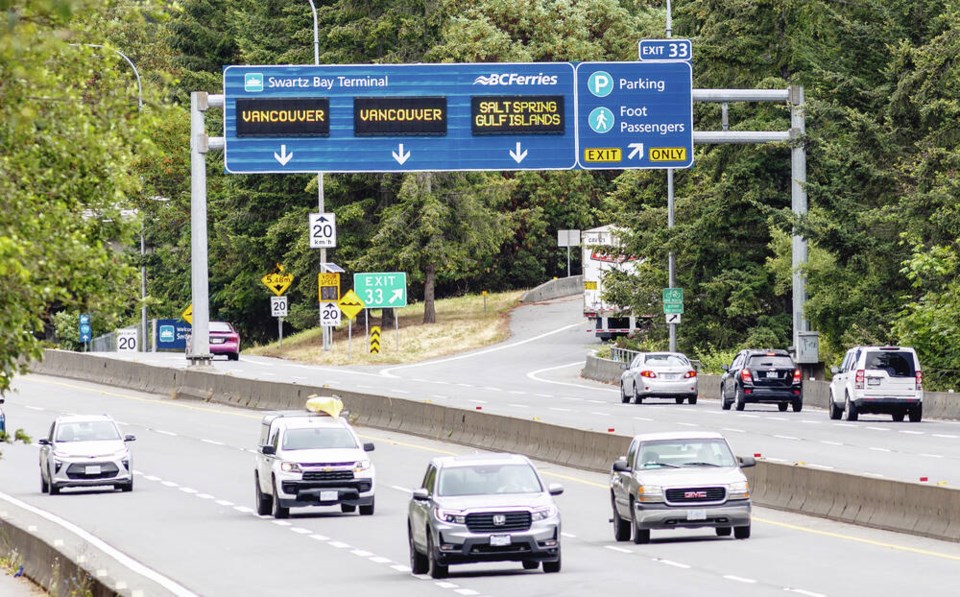With more than 600,000 people expected to travel between Â鶹´«Ã½Ó³»Island and the Lower Mainland, B.C. Ferries says it’s expecting “smooth sailing” for the Island’s busiest travel weekend of the year.
Spokesperson Liza Yuzda said the ferry company’s engineering teams have done a “fantastic job” of retrofitting vessels and preparing for the peak season. “So far so good. It’s been smooth sailing and we hope it will continue.”
Last summer, travellers faced delays when Coastal-class vessels were taken out of service for repairs in July and August, cancelling sailings.
With ferries expected to carry more than 215,000 vehicles from Aug. 1 to 6 this year, waits are expected on popular routes, particularly for those travelling from Metro Â鶹´«Ã½Ó³»to the Island on Friday and heading to the mainland from the Island on Sunday and Monday, Yuzda said.
“If you have a reservation, get there early — because things are busy,” she said. “If you don’t have a reservation, especially if you’re travelling at peak times and in the peak directions, you really need to be prepared to wait.”
Another option is travelling as a walk-on passenger, especially if someone is able to drop you off, as ferry terminal parking lots can fill up fast, she said.
Police say they will be deployed in higher numbers over the weekend in Lake Cowichan, where the Sunfest Country music festival is being held.
RCMP will be patrolling on both land and water with a particular eye out for impaired driving, alcohol consumption on boats and behaviour on public parks and beaches.
“Don’t drink at all if you are planning to drive,” Lake Cowichan RCMP said in a statement, noting impaired driving is one of the leading causes of death in Canada.
According to data collected by ICBC between 2018 and 2022, on average, 67 people are injured in 306 crashes on Â鶹´«Ã½Ó³»Island every year over the B.C. Day long weekend, from 6 p.m. Friday to midnight Monday.
Those crashes are also partly driven by more fatigued drivers on the road, ICBC said.
The number of driver-fatigue related crashes spikes by 58 per cent in July and August compared to the rest of the year, ICBC said, attributing the increase to higher temperatures and the prevalence of long summer drives.
In its B.C. Day long-weekend advisory, ICBC said drivers should plan for a break from the road every two hours and to avoid driving when fatigued.
“Fatigue can slow your reaction time and when driving at highway speeds, even a slight reduction in reaction time can significantly increase your risk of crashing,” the insurance corporation said, adding that an ideal trip begins with seven hours of quality sleep for the driver.
Drivers should pull over and take a nap if they are experiencing blurred vision, boredom, erratic driving behaviour or can’t recall the previous few minutes of driving, it said.
Before setting out on a trip, check for the latest road conditions and to find out which roads may be closed.
While no wildfire evacuation alerts or orders are active on Â鶹´«Ã½Ó³»Island, wildfire risk remains high. A campfire ban has been in place since July 12 and will remain until Oct. 31 or until it is rescinded.



